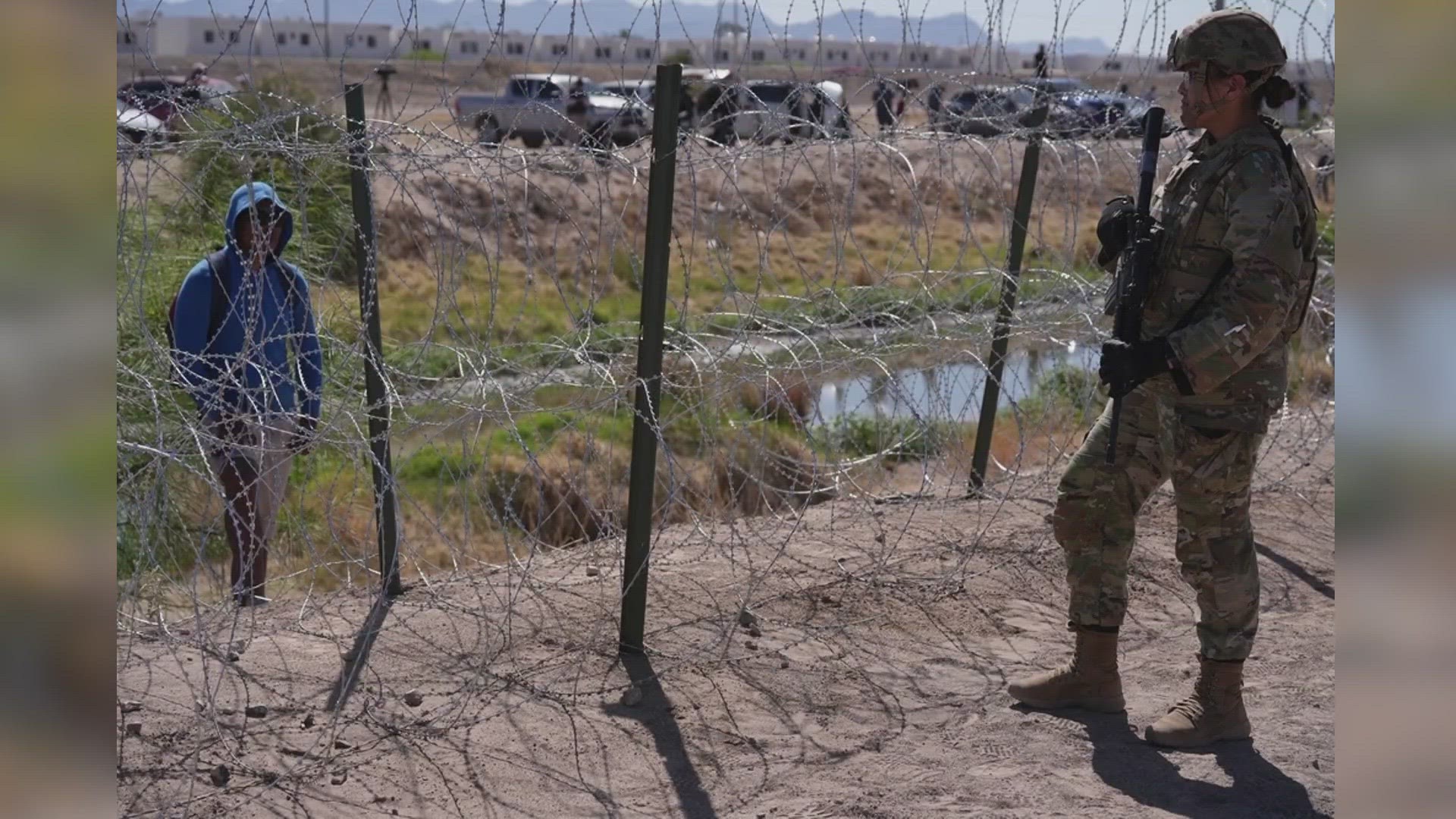SAN ANTONIO — Gerardo Menchaca, an immigration attorney at Escamilla and Poneck LLP, says he's been booked solid the last few days as migrants come to terms with how the Biden administration's new policies, which went into effect Friday, differ from the now-expired Title 42.
KENS 5 spoke to the attorney Friday. Here are five major differences the public needs to understand.
Seeking asylum
Title 42 gave immigration officials the option to completely reject asylum claims in responding to the COVID-19 pandemic, regardless of the actual danger of virus spread. Many migrants still entered the country while Title 42 was in place, via legal and illegal means, but didn't know if they would be turned back or not.
The Biden administration's new policy gives migrants specific opportunities to make asylum claims, Menchaca says, but only if specific conditions are met.
"You have to have either already sought asylum in a country you have already passed though, or use one of the legal pathways available. If you didn't do either one, then you can't apply for asylum in the United States," he said.
This means a migrant traveling from Venezuela, for instance, must be able to show they tried to ask for asylum in at least one country between Venezuela and the United States, or they must make an appointment with via the newly launched Customs and Border Protection One Mobile Application.
Migrants who don't do either won't be able to seek asylum, which could be an issue for people already lined up along the Texas-Mexico border. Menchaca said some individuals tried to get into the U.S. before the rule change for that reason, adding attorneys are still trying to pin down the fine print on the new rules.
"Basically, all these rules that we don't have clarity on make it harder to apply for asylum," Menchaca said. "It's not easier today than it was yesterday."
Penalties for entering the U.S. between points of entry
Some migrants who entered the U.S. illegally during Title 42 were returned to Mexico. Others were not.
As of Friday, the Biden administration is choosing to enforce different rules, some of which are based on federal law (U.S.C Title 8) which already exists.
Under Title 42, migrants did not necessarily face legal penalties for crossing into the U.S. illegally, according to the National Immigration Forum. Under the new policies, however, an unauthorized border crossing becomes a misdemeanor, and a repeated unauthorized crossing becomes a felony.
Any unauthorized crossing will make it more difficult for the migrant to claim asylum.
Migrants can be barred from seeking asylum
Under new policies based on U.S.C Title 8, any migrant that illegally enters the U.S. can be barred from making a legal asylum claim. That obstacle can last for 5,10, 15 or 20 years, and will set the migrant back even if they would otherwise have a legal asylum claim.
Asylum cases will be processed faster... and migrants will be removed from the U.S. faster
Menchaca said there will be additional asylum officials sent to the border so that the U.S. will be processing around 1,000 asylum-seekers a day, instead of 300.
At the same time, he said the administration is sending more resources so the U.S. can deport smaller groups of people in order to speed up the deportation process.
Some migrants will be returned to Mexico even if they are not from Mexico
According to Department of Homeland Security Assistant Secretary Blas Nunez-Neto, who spoke in an online briefing on border operations Friday, the Mexican government is going to accept the U.S. returning migrants from Venezuela, Cuba, Haiti and Nicaragua.
"Those individuals will be removed to Mexico directly from border patrol custody," Nunez-Neto said. "Those returns will begin happening today, and I would defer to the government of Mexico for questions of how they will be processed on the Mexican side of the border."

